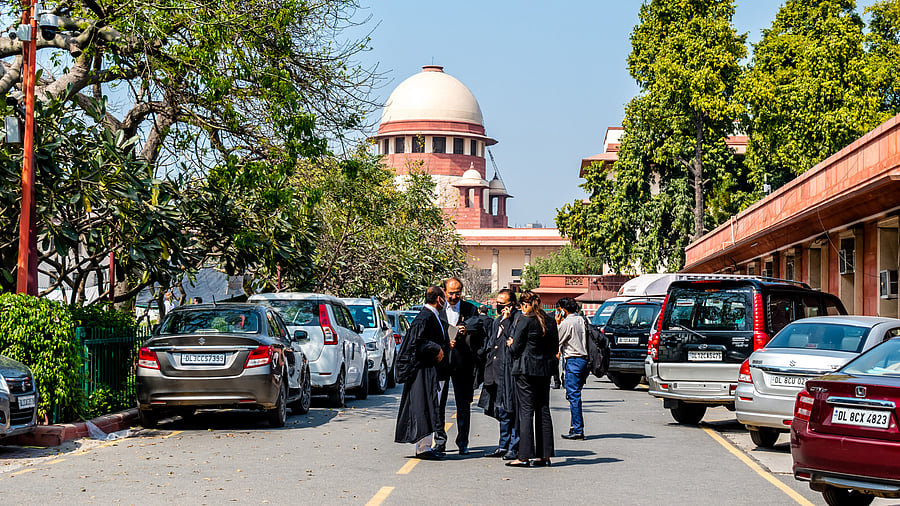
Image showing lawyers in front of the Supreme Court. For representational purposes.
Credit: iStock Photo
New Delhi: The Supreme Court Advocates-on-Record Association (SCAORA) has expressed serious concern over the rising trend of advocates creating video reels, engaging in videography, and producing related content within the apex court premises and uploading such material on social media platforms like Instagram, YouTube, Facebook, and X.
In a letter to Chief Justice of India B R Gavai, SCAORA President Vipin Nair and Secretary Nikhil Jain urged him to issue a clear and comprehensive guideline prohibiting videography, photography, and any form of content creation within the court premises, except as specifically allowed under the Supreme Court's protocols.
They requested a reiteration of the prohibition on direct or indirect solicitation by legal professionals through social media or any other public platform, in accordance with the Bar Council regulations.
The association, in its communication on July 25, 2025, also sought a prohibition on the uploading or sharing of court proceedings or footage, whether recorded or via live stream, outside the approved channels of the Supreme Court.
It pointed out that many of the videos uploaded on social media, although sometimes accompanied by disclaimers, often end up promoting the individuals concerned by displaying their contact details or conveying messages amounting to impermissible solicitation, which is expressly prohibited under the Bar Council of India Rules.
The association felt these activities also interfered with the fairness of the judicial process by introducing external pressures, fostering a trial by media, and risking the distortion of court proceedings in the public eye.
"The sensational presentation or selective portrayal of court proceedings on social media can mislead the public about the facts and context of cases, thereby compromising the integrity of the adjudication process. Moreover, such conduct undermines the image of the Supreme Court as an institution and tarnishes the reputation of both the judiciary and the legal profession, casting doubts on the impartiality, seriousness, and ethical standards expected from advocates," it said.
The association also pointed out that unauthorized videography within high-security zones poses serious risks, potentially breaching the stringent security protocols established for the safety and integrity of the Court.
Additionally, judges of the Supreme Court have repeatedly expressed apprehensions about the misuse of short video clips—especially those taken out of context from live streams—which can result in misinformation and sensationalism, thereby undermining judicial authority, it said.
